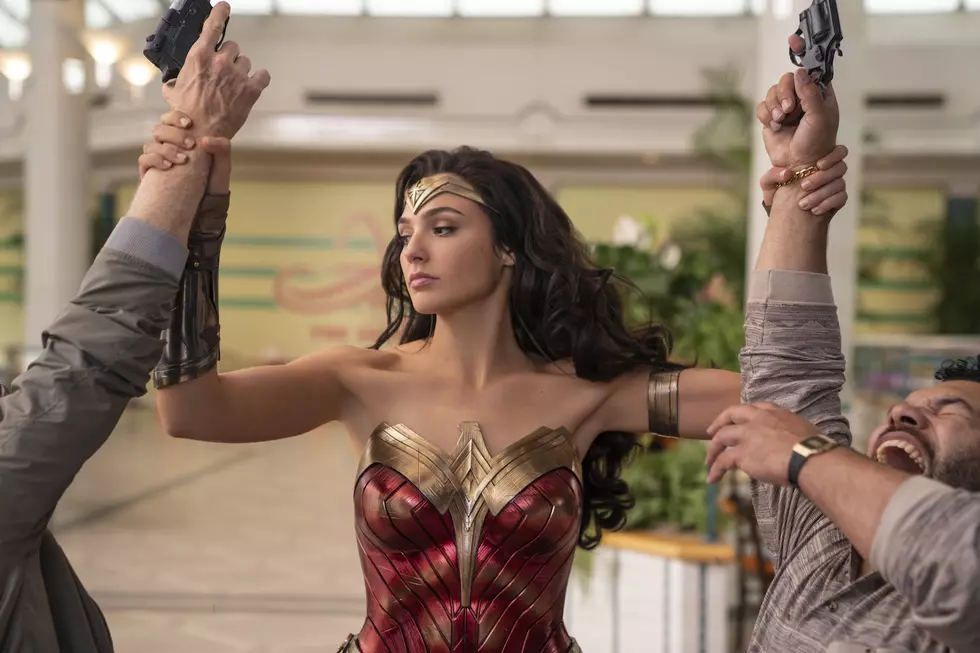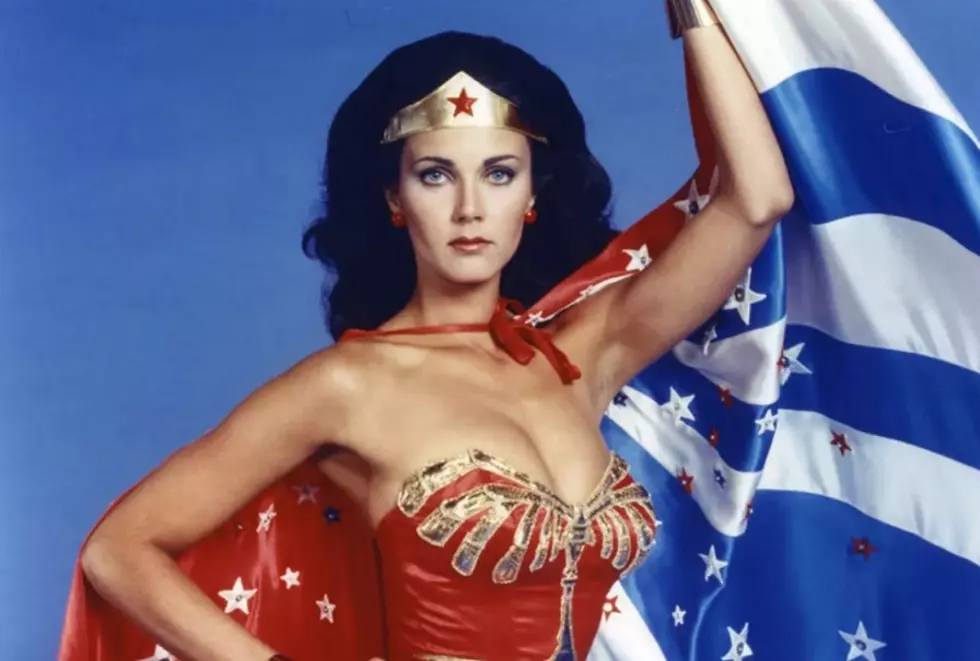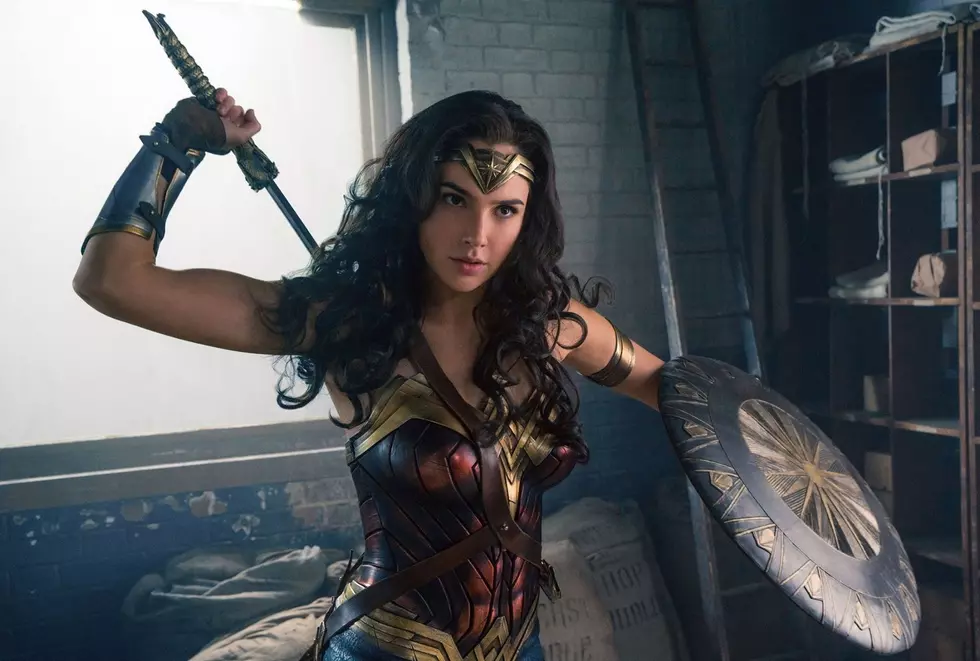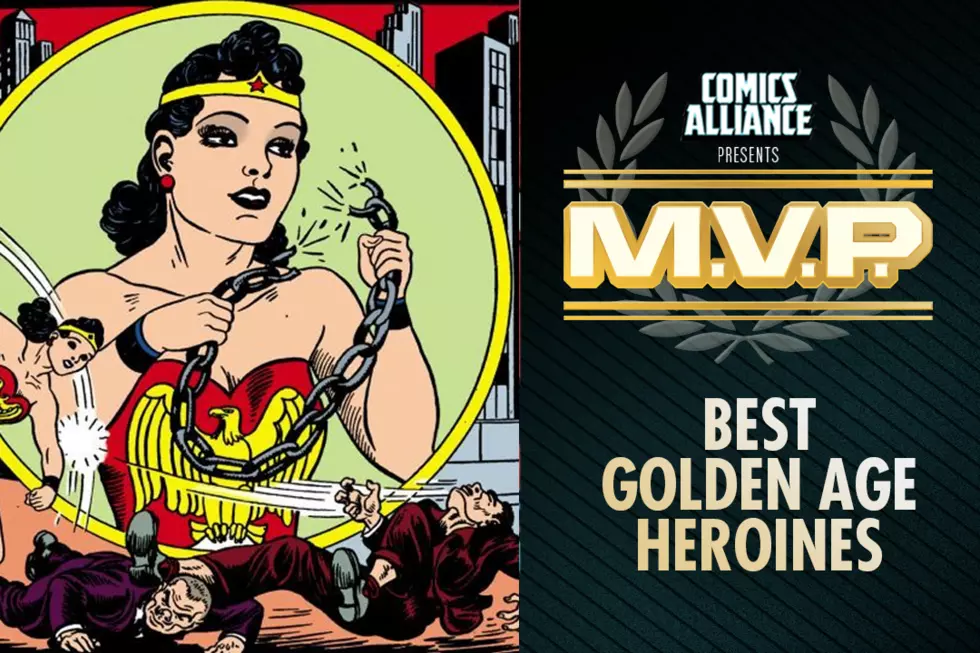
Who Is Wonder Woman? The Diamonds And Dinged Plastic Of Azzarello & Chiang’s Amazon Princess
Who is Wonder Woman?
Is she a being of love adrift in darkness, as portrayed by Brian Azzarello and Cliff Chiang in their recently ended run? A dowdy wallflower, eternally at war with her own glamorous alter ego for Steve Trevor’s affection? George Pérez’s goddess of truth? Robert Kanigher’s wannabe wife? Greg Rucka’s diplomat? Gail Simone’s savior? Robert Valley's hot rod heroine? The Justice League’s secretary? Superman’s girlfriend? Batman’s girlfriend? Lynda Carter in satin tights? William Moulton Marston’s herald of benevolent matriarchy or the sexed-up uberbabe I met as a comics-curious child? Or, in the most macro sense—the one that most of the public operates on, when it comes to Wonder Woman—is she merely the century’s most generic t-shirt symbol of girl power?
One might protest the same problem plagues all superheroes. Is Batman found in Adam West’s jauntily eyebrowed mask or Frank Miller’s blackened odes to dudely angst? Is Superman a crusading New Dealer or a big blue boy scout? The crucial difference is that characterization sticks with these guys. A Batman reinvention changes the face of comics for decades at a time. No one’s still arguing for Batnipples or shark repellent—Batman ’66 can exist alongside Scott Snyder and Greg Capullo's modern day run because the two are not in competition for headliner status.
And even if things are a little more nebulous, as with Superman, iconic stories emerge: Superman for All Seasons, Whatever Happened to the Man of Tomorrow, All-Star Superman and Red Son are all different takes on the same character, but they share more than they disagree on and are widely beloved. There’s a sense of who he is and a groundswell of confidence and support from fan and publisher alike because of it.
Stories matter with these guys—and they are always guys—in a way that they don’t for Wonder Woman, because they rest upon different, well established tiers of importance. Because we know who they are, and experimentation does not threaten that. They’re variations on the same character, not different characters entirely jockeying for primacy. There’s a sun at the center of their galaxies and established, if far-ranging, patterns of orbit.
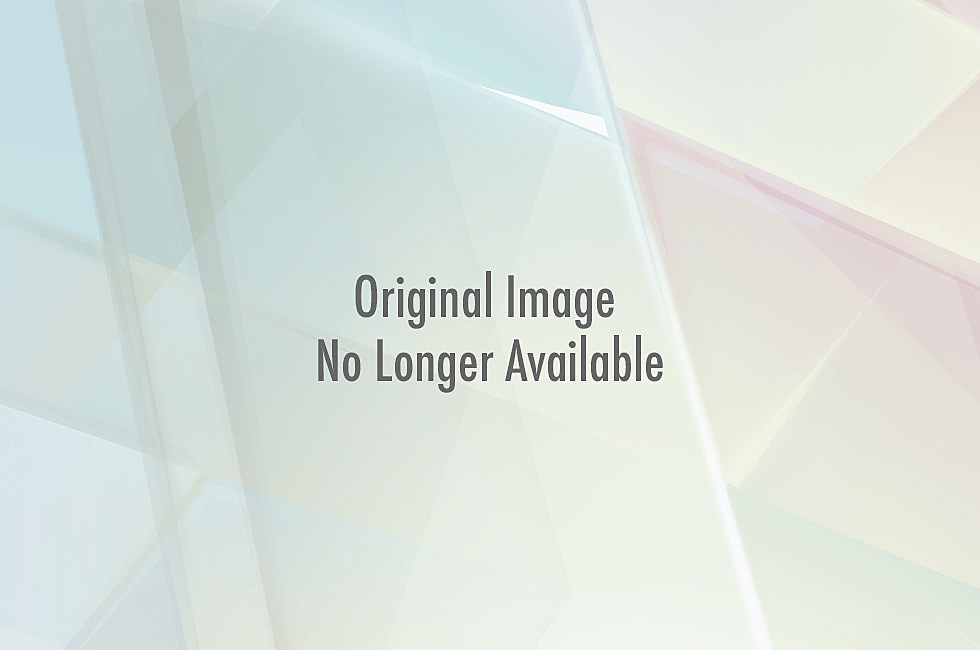
Wonder Woman, in contrast, is a mess. There is no weight in her universe, no ne plus ultra to cleave to. Like most superheroines who have existed since the Silver Age or earlier, she is more symbol than character, more plaything for the male imagination than anything else. She and her ilk—think Supergirl, Jean Grey, Sue Storm, Lois Lane—have served as housewives, lolitas, bad girls, harridans, and engines of plot for years without ever arriving at “definitive” portrayals. They are, as they have ever been, what men need them to be. This meant, for Wonder Woman, losing her central identity as a comment on gender roles.
As Jill Lepore details in The Secret History of Wonder Woman, Diana was born of feminism—not necessarily one we would celebrate today, but feminism nonetheless—and in excising her soul, DC has unmoored her. Cue decades of reboots and think pieces and editorial mandates to figure out, once and for all, why the hell we should care about this enigmatic, yet omnipresent character.
Considering any Wonder Woman story, then, is an exercise in piecemeal thinking. You accept, first of all, that you’re not going to get what you actually want. You enjoy what you enjoy, and you dislike what you dislike, and you pray that future creators will listen. You pray that this time, something will stick, that eventually, someone will get it. You grow dogged and determined, if eternally disappointed.
Brian Azzarello and Cliff Chiang’s run ended up being the only New 52 series I followed to its conclusion, perhaps, in part, out of that dogged determination—but not entirely. Its premiere buzz hooked me, as it did many others. The idea, Azzarello and Chiang detailed in a flurry of interviews, was to be bold. It was going to introduce conflict the likes of which Wonder Woman had never faced before. It was going to be a horror book—though it was only ever really a superhero book with certain gory, urban fantasy affectations. It wasn’t going to be a hard reboot, but it was going to approach things from a different, grittier perspective. I liked the first issue. I liked the second. It stayed on my pull as dozens of other New 52 titles fell to the wayside.
It has been a week since the Azzarello/Chiang run concluded and there is, I am pleased to report, much to recommend about it. Chiang’s depiction is up there with George Pérez’s as the best Wonder Woman art of all time. It has a nobility and grace that made moments of triumph feel truly transcendent and kept the bloodiest moments firmly in the realm of “dark” rather than “seedy.” His designs for the gods were innovative and excellent, particularly in his willingness to mix modern style with monstrousness. Matt Wilson’s colors were never short of perfect, especially when depicting Hades’s eerie realm and the First Born’s gruesome redecoration of Olympus. Skin was sallow, flesh was bloody, and it was all just horrifically good.
Most crucially, as a Wonder Woman artist, Chiang never gave into cheesecake—though I do wish he’d get a little more creative with female faces, objectification was blessedly absent.
Perhaps the series’ greatest strength is Diana herself. Azzarello cherishes, for 35 issues, what so many Wonder Woman writers forget: love, mercy, and compassion above all. There is no major battle that Diana does not win through these traits, no challenger too villainous to embrace. She spares a minotaur as a child, hoping her mercy can be “a tribute to my mother” in lieu of his hacked-off head. When pressed into marriage by Hades, she confronts him with a plea for his own self-esteem. She wins the vengeful spirit of a murdered child to her side through acknowledgment of her grievances. She is empathetic in the extreme, yet never to a fault—empathy is what gains her allies, saves her sisters, and wins the day once and for all. While the big bad of this run has a fire that consumes, hers “is one that inspires”—compassion is her passion.
I worried, initially, that Azzarello was going to go Xena knockoff with Wonder Woman, but I was delightfully wrong. He even brought the Amazon’s love of submission into the modern age, defining it as Diana’s “faith in the strength of others,” which actually, totally works. Azzarello’s Diana is a warrior, but she is never a warmonger; she is a lover, but never a fool. In embracing and outright celebrating this, the run is at its best.

But where Diana is bright, nearly every other character in this run is dull. Here’s the thing: this series was basically all about Wonder Woman protecting a female rape victim. This is exactly my jam. But Zola, said victim, never develops beyond her circumstances. She’s….pregnant. A Virginian. Sexually active. Vaguely spunky. Prone to t-shirts with wildlife on them. She stands on the final page, her child in her arms, within Diana’s embrace, and I feel nothing. The same can be said of every character Azzarello created for this book—the First Born, the run’s primary villain, is an absolute void of personality. I get the idea of pitting Wonder Woman, a creature of benevolence, against a being of pure hatred. But there was little gravity there, shallow depth, no grounding. He doesn’t need a sob story, but he needs to be something beyond Bad—and certainly beyond Bad in leather pants and spiked kneecaps, as he was for half the arc.
Crowded around these mediocre tent poles is the rest of the supporting cast, who fare no better. There were Diana’s many half-brothers and sisters, bastards of Zeus looking to join or destroy her for reasons that never really got interesting. None rose above the level of plot device, most irritatingly Lennox, who insisted on being gruff, British, and not much else for way too many issues. The gods and goddesses themselves were a little more interesting from time to time, but never in a way that got true development of focus.
Really, the only character I cared about, beyond Diana, was Hera. She goes from wronged queen of the gods to exiled mortal to queen again, growing with each issue but never losing her catty edge. Hers is the one story Azzarello truly took risks with, and thus the only story I found myself honestly moved by. She grows and learns and struggles in a way that was not purely martial, and in this, she is alone.
This is a flaw I often forgive, when it comes to superhero comics. It pains me to do so, but it’s the reality for flagship titles that need to be action-oriented. But the action here…wasn’t. Here’s what I can tell you about this three-year storyline: there’s a prophecy about baby MacGuffin and the throne of Olympus, though we never really learn what that entails for the rest of the world, or, really, what the hell the New 52 gods’ powers even are. Suffice to say, it’s a big deal. Everyone wants the baby. Apollo rules Olympus for a while. Zeus’s first bastard kid comes back. He takes the throne, but then the good guys win.
I literally just reread the entire run 24 hours ago and that’s what I can tell you, because the rest of it was an endless game of hot potato with zero emotional stakes. Three years of watching characters I don’t care about fighting over something never properly explained. Three years of “bad guy has the baby, good guys take the baby back, oh no, another bad guy has the baby.” I am capable of loving slow-burning plots, but without character focus and growth they’re more endurance test than entertainment. I wasn’t energized after finishing the run last night—I was exhausted.
Apart from these criticisms, there’s the question that must be asked of every Wonder Woman-related piece of media: is it feminist? There answer here is…kinda. On the one hand, this series gets Diana totally right. Given how many creators brush her (female-coded) virtues aside as soon as they can, this is an enormous mark in the run’s favor. But, well, then there’s the Amazons. In changing Diana’s origin and portraying the Amazons are raping, murdering slavers who mocked our heroine as “clay” throughout her childhood, Azzarello fails to grasp why Paradise Island, the Amazons, and Diana’s virgin birth have endured as core parts of Wonder Woman’s mythology.
However, I understand the wisdom behind these changes: miring Diana in a family conflict is tantalizing stuff. She’s tangled with the gods before, but never on so intimate a level. She’s battled her sisters, but never been so torn over her place among them. It’s juicy, it’s fraught, and it introduces dramatic tension to what some see as too sunny a character origin. Azzarello himself put it best in a recent interview: “There is no story in Paradise.”
The problem with that approach, though, is that it undermines what's unique about Wonder Woman’s superheroism. Leaving aside the fact that writers have, for decades, managed to depict interesting conflict between the Amazons, conflict in truly great Wonder Woman stories comes not from her origin but from her interaction with, ahem, Man’s World. She’s not the last daughter of a dead planet. She’s not wrestling with the ghosts of her past. She’s not driven by personal failure. She is an idealist confronted with the ugly reality of man, and her limited ability to change it. Where other heroes’ conflict is internal turmoil writ large upon their world, Wonder Woman’ is the horror of the external scrawling itself upon her soul.
Greg Rucka’s run is perhaps the best modern Wonder Woman run for this reason: it begins with Diana publishing a book of high-minded essays, then confronting, with increasing intensity, the fear and anger of a defensive world. She’s not a woebegone Marvel teen, nor a tortured genius. She doesn’t reflect the extraordinary angst of extraordinary men. She reflects the cruelty of the everyday, and our complacency in it. The hook of Wonder Woman is obvious to girls and women for this reason, yet invisible to so many men with a reboot fetish: she sees us, and she tells us it doesn’t have to be this way. Her conflict is thus rooted in horrors and angst far more “realistic” and “gritty” than being, say, an orphaned rich kid—but they make us uncomfortable, so we avoid them. And the cycle of interpretation begins again.
Perhaps more damningly, as Lepore details in her book, Paradise Island was born of feminist utopian fiction. George Pérez, who envisioned it as a home for the reincarnated souls of women murdered by men, and Gail Simone, who saw Diana as savior to an island of wannabe mothers, got this. It’s a power fantasy for women, the one fictional place you know will pass the Bechdel test. We are not beyond needing this. We are not beyond needing over the top depictions of women’s strength and intelligence utterly free from the shadow of patriarchy. We need at least one guaranteed female space in the superhero medium. Gloria Steinem put it best:
Wonder Woman's family of Amazons on Paradise Island, her band of college girls in America, and her efforts to save individual women are all welcome examples of women working together and caring about each other's welfare. The idea of such cooperation may not seem particularly revolutionary to the male reader. Men are routinely depicted as working well together, but women know how rare and therefore exhilarating the idea of sisterhood is. Wonder Woman's mother, Queen Hippolyta, offers yet another welcome example to young girls in search of a strong identity. Queen Hippolyta founds nations, wages war to protect Paradise Island, and sends her daughter off to fight the forces of evil in the world ... Wonder Woman symbolizes many of the values of the women's culture that feminists are now trying to introduce into the mainstream: strength and self-reliance for women, sisterhood and mutual support among women, peacefulness and esteem for human life: a diminishing both of "masculine" aggression and of the belief that violence is the only way of solving conflicts.
This fantasy and ideal is exactly what Azzarello disrupted, in ways that changed the island and, later, Diana herself. The sources of Diana’s strength, previously her Amazonian sisters, her mother, and the female goddesses, were replaced with men over the course of this run. She has godly powers courtesy of Zeus. She has bracelets that materialize swords into her hands from Hephaestus. She is trained from childhood by Ares, and it is this extra-special male training that puts her beyond the skill of even the deftest Amazons. The Amazons who are, I should mention, turned into snakes for most of this run, and thus total nonentities—and are, when they return, forcibly integrated with men under the banner of progress. The women in Diana’s life are absent, disgraced, and defanged. In their place are…well, lots of men. It’s not that there aren’t female characters, but it is men who typically fight alongside Wonder Woman in this run, men who guide her, men having tepid manly personalities like “gruff dude” and “arrogant.”
The worst of the lot was Orion of the New Gods, who made his mark by smacking Diana’s ass and calling her “legs.” Here’s something absolutely no Wonder Woman comic needs: a lovable misogynist. It’s not cute. It’s not funny. It’s all too goddamn real for female readers and the fact that it became an enduring quirk after one token protest from Diana is frustrating in the extreme. In this way, while the run may embrace “values of women’s culture,” it does not embrace women. And no Wonder Woman run can be truly great carrying such a flaw.
So here we are: No Paradise Island, no Amazons, no societal conflict, yet it was the best-looking superhero comic on the stands, and it did hold true to Diana’s central virtues. Another Wonder Woman run down. Another twinkle in the galaxy that is Interpretations of Wonder Woman. Another take coming down the pike. It is tempting to slam Azzarello and Chiang's work for failing to live up to the unimpeachably perfect ideal in my heart—the ideal that has only solidified with every disappointment. But that would be vindictive and inaccurate. This run is flawed, and it is frustrating, and I doubt I’ll re-read it in full even again. I begrudge no one their love of it, nor their disdain. It is, like every Wonder Woman story, a jewelry box rattling with diamonds and dinged plastic. Let us hope that future creators appreciate its virtues, move beyond its faults, and work towards a definitive future.
More From ComicsAlliance



